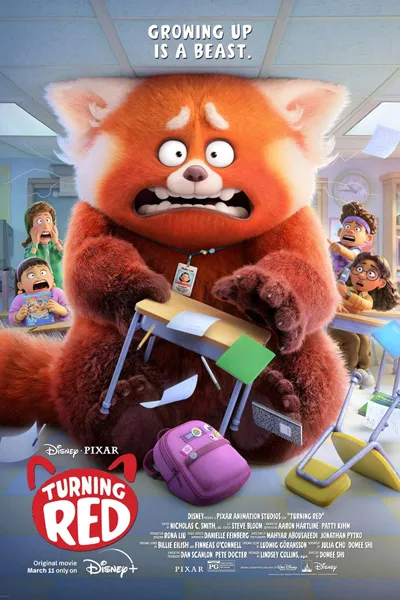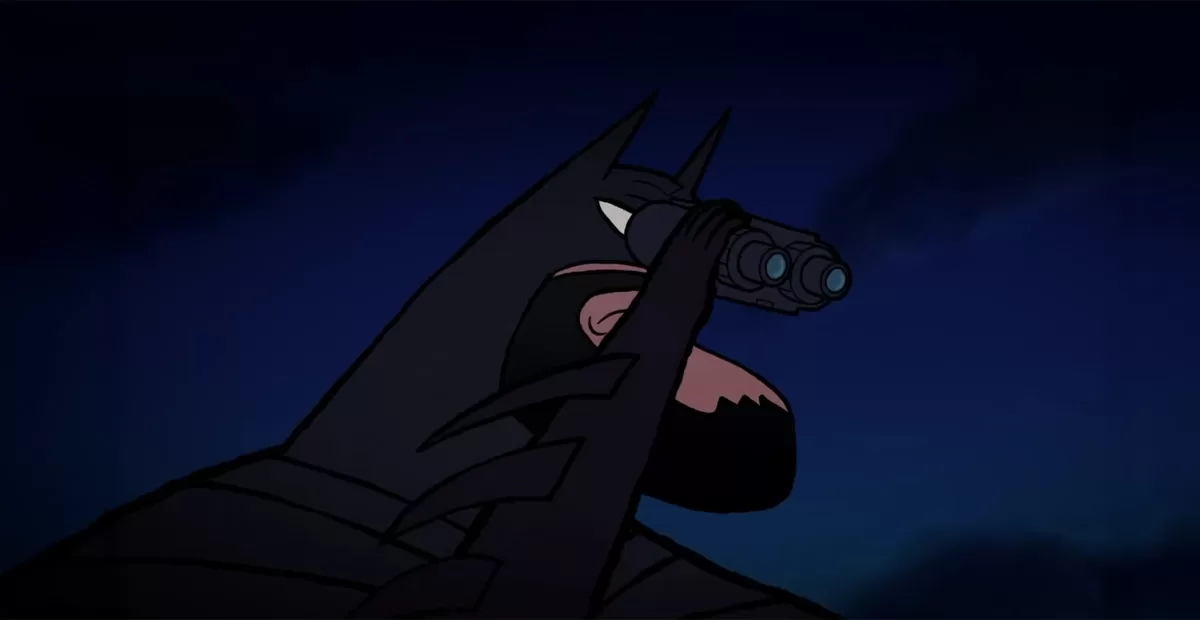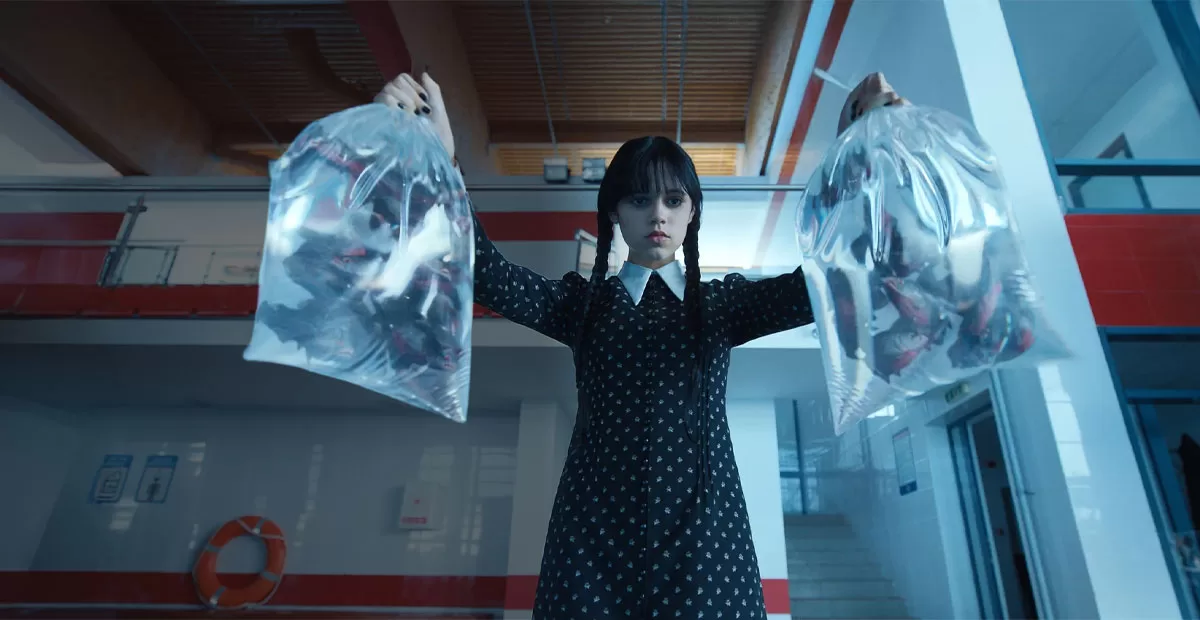
- Starring
- Rosalie Chiang, Sandra Oh, Ava Morse
- Director
- Domee Shi
- Rating
- PG
- Genre
- Adventure, Animation, Comedy
- Release date
- March 11, 2022
James Carrick
James Carrick is a passionate film enthusiast with a degree in theater and philosophy. James approaches dramatic criticism from a philosophic foundation grounded in aesthetics and ethics, offering insight and analysis that reveals layers of cinematic narrative with a touch of irreverence and a dash of snark.




One comment
Sweet Deals
August 19, 2025 at 2:50 pm
I already walked into Turning Red with a bad feeling. I heard mostly negative opinions, and the only positive one came from a person whose tastes definitely didn’t align with mine. I once had to mop up a sewage backup in the basement following a rainstorm and I didn’t complain or gag once, but nothing makes my stomach turn quite like the elements in this movie.
Meilin Lee is now 13 years old. She’s pudgy, dumpy and clumsy. She acts like she’s the Queen of Toronto and gets to do whatever she pleases. She’s an over-achiever and is constantly rubbing other people’s noses in it. When others share their opinions that yes, Mei is obnoxious, she just takes that as a compliment that she really is better and cooler than everybody else. This isn’t youthful confidence; this is full-blown arrogance, and I could already feel the bile rising in my throat. Her best friends aren’t any better: they’re not affable dorks with relatable flaws. Mei’s friends are just as horrible and grating as Mei herself is. Mei and her friends are obsessed with a boy band called 4-Town where every member is an ultra-sensitive pretty boy. Set all this to a hyper-exaggerated, overstimulating bad-Internet-cartoon-from-2013 animation style and syntax that isn’t quite up to Pixar’s usual detailed standards and tired jokes about 2002’s outdated trends and technology (boy bands, Nokia phones, camcorders, Tomogatchis), and Turning Red has already put three strikes on my puke threshold before five minutes have passed. If I were smart, I would take this as a sign that this movie is not meant for me and I should have just turned it off and walked away. To wade through this, I had to put on my protective slime suit and pause the movie every ten minutes to take a walk when the action became too unbearable.
Mei’s family owns a temple that honors her ancestors, like the one in Mulan. Her family’s most honored ancestor is a woman with a deep spiritual connection to red pandas. She had the power to transform into a giant red panda to defeat her foes and passed the trait down to all her daughters (and only her daughters). Unfortunately, in 2002 Canada, this blessing has become a curse, and when every female member of Mei’s family comes of age they must undergo a ritual to banish the red panda spirit into an amulet so it doesn’t haunt them. The Red Panda curse is obviously meant as a metaphor, but it’s handled very poorly. Mei turns into a red panda when her emotions get out of hand, which is all the time because she’s a neurotic wreck with no self-control. She learns to “control” it by essentially bottling up her emotions rather than learning how to manage them in a healthy way, but even then she still loses her mind. However, the twist is that when the secret comes out, everyone at school thinks that being a giant red panda is cute and amazing and they can’t get enough of her. Because of this, Mei and her friends go on to exploit the red panda for attention, popularity and enough money to buy tickets to the 4-Town concert. Instead of becoming a more mature and responsible person, Mei goes completely panda-crud-crazy behind her mother’s back, and the movie treats this as a good reason for her to keep her panda powers instead of locking them away like the rest of her family has done and expects her to do as well.
Mei says she loves her mother and she’s supposed to honor her, but I dislike her just as much as I dislike her daughter. Mom may have sealed her red panda spirit inside an amulet, but even as a human she’s a soul-devouring beast who can’t control her emotions and has no respect for her daughter’s boundaries. What she did at the Daisy Mart was wrong and unforgivable, and she only gets worse from there. When Grandma enters the scene, we discover that the matriarch of this family is also a controlling, soul-devouring beast who destroyed Mom and filled her with guilt when she was a girl, and this has become an intergenerational multiple-car-wreck where mothers visit sins on their daughters generation after generation. Later, Mom loses all control and her red panda spirit is let loose, it’s abundantly clear why she’s so afraid and needs to keep it locked up. Mei uses her red panda spirit to help contain her mother, and all her female relatives break their amulets to release their red panda spirits to join her. They re-do the ritual again and every relative seals her spirit away without a second thought, and when Mei says she won’t do it, they don’t even raise a fuss about it like they did earlier, warning Mei that red panda spirits are dangerous and the more she lets loose, the less she’ll be able to control it. The inconsistent attitude makes it difficult for me to conclude whether the red panda spirit is supposed to be a good thing or not. We’re left with a shrug and “it’s her life”, and the whole matter becomes subjective.
I can’t root for either mother or daughter and won’t take a side in this situation, because I think both of them were acting extremely selfish and completely out-of-line. Honoring one’s mother doesn’t mean she gets to completely overpower you, control your life and embarrass you in public, but asserting your independence doesn’t mean you get to run around like a wild animal saying “my panda, my choice”. If there’s a real issue here, it’s an excess of pride and an inability or outright unwillingness to impose healthy limits. By the time the movie was over, I felt I needed a high-pressure chemical shower to wash away the disgust. Narcissism, unhinged neuroticism and sexual self-exploitation isn’t feminine empowerment. Girls and women deserve better role models to identify with to set better examples about what it means to be responsible and virtuous, and they shouldn’t be taught to be ashamed of their natural and healthy selves.
Let’s move on to potentially objectionable elements (besides the entire movie):
Mei says “crap” and “crud” a lot.
Mei and her friends are constantly drooling over boys: classmates, boy bands and the clerk at the Daisy Mart. Mei is so boy-crazy that she subconsciously fills her notebook with erotic fantasies that she’s too ashamed for her mother to look at. Her hormones are clearly out-of-control.
Although the origin story of the Red Panda does not appear sexual in nature, the movie plays the song “Bootylicious” and Mei rebelliously tells her mother she enjoys gyrating. She is 13 years old.
Blah blah blah intersectionality racial diversity. Policeman wearing a turban. Bystander wearing a hijab. Black classmate with black dad and white mom. Erotic fantasy featuring black dude with a mermaid tail.
A classmate named Tyler invites Mei to his birthday party saying he’ll pay her money if she comes as a red panda. It’s a house party with both boys and girls. One of Mei’s friends even asks whether they’re allowed to go to boy-girl parties. For the record, back in 2002 we were making jokes about Lateral Gravity Syndrome, which doesn’t appear to be an issue, but before Mei shows up, literally nothing is happening at Tyler’s party. The party also appears to be unchaperoned because the parents didn’t seem to be aware of it about it until after Mei has a major tantrum and someone calls the police.
Only one of the girls in Mei’s posse gets permission from her parents to go to the 4-Town concert, but all three go together. When they finally get to the concert, no adult is accompanying them. They also spot Tyler at the concert covered in merchandise and he acts like he’s ashamed to admit that he likes the band. He previously had a “tough guy” persona but wimped out at his birthday party after Mei hulked out.
Nobody in the movie appears to be openly homosexual, but the over-exaggerated reactions of some of the children makes this questionable. As the credits rolled, I spotted a couple of 4-Town stickers with rainbow designs resembling Pride flags.
Mei’s father, who mostly appears in the background, is probably one of the more grounded and level-headed characters in the movie. Dad is an excellent cook, he’s the one who’s gentle enough to instill a sense of confidence in his daughter and suggests she make her own choices instead of letting her overbearing female relatives decide things for her, and he’s the one who responds right away when his wife goes completely insane. However, I can’t un-see that post-credits scene.